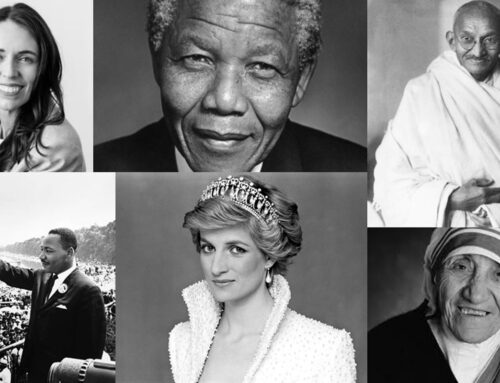
Kim Kardashian knows how to turn heads. She is an astute businesswoman, who certainly knows how to get attention. She has extracted more than her 15 minutes of fame, and her influence extends far and wide.
In contrast, Malala Yousafzai, the young Pakistani educator who is also the youngest Noble Prize Laureate, survived a targeted assassination by the Taliban to stop her and her influence spreading. After her recovery, her advocacy for female education only increased. She was named one of the world’s most influential people by Time magazine for three years running!
So, while KK knows how to create a scene, Malala’s cause is about playing for keeps – winning hearts and minds.
Attention is easy. Influence takes effort.
The contrast between those who can gain attention and those who have influence is not always easy to spot. Real influence results in real impact. Attention seekers are almost always short on substance.
Yet, how does one become influential? Is it a natural gift or talent, or can it be learned or practised? The good news is we can become better at influence, but it does require self-reflection and practice.
When working in an executive coaching context, I tend to focus on five powerful and interrelated competencies that must be assiduously developed to become more influential.
Become a storyteller.
It is no surprise, that the first is communication. Well-polished interpersonal skills are vital. Yes, we need to be able to speak with confidence and authority, but more importantly, we must be able to tell stories.
Communication is about the management of meaning, and nothing enables the sharing of meaning better than a good story. We remember stories. So, learn how to tell a story. Let your curiosity guide you as you study those who tell stories well. And don’t be afraid to use your imagination and emotions to bring stories to life.
Be an expert in your field.
Next, you need to be regarded as an expert. You need to know your subject area well and ensure there are ample opportunities to demonstrate your expertise. This is not about showing off. Quite the opposite, it is about being comfortable and confident. Generous with your knowledge, while still humble and curious about the subject.
Connection and Confidence.
The third factor is to be networked, because being connected is critical to opening up opportunities.
Tony Tjan, co-author of Heart, Smarts, Guts and Luck, says in an HBR article, ‘In our research, 86% of the Luck-dominant [people] credit a key part of their success towards an “openness to new things and people”’. He argues that there is a limit to how deliberate such networking can be. Instead, it is about a set of relationships built out of curiosity, openness and generosity that also happens to encompass people who turn out to be pivotal. Tjan says these Luck-dominant people are also highly self-aware.
Self-awareness is also a prerequisite for confidence which helps build influence. Self-awareness allows us to examine our own strengths and weaknesses. And when we can do that, we can also seek development to overcome skills gaps. A great deal of an executive coach’s time and effort is invested in this area.
Become the leader you want to be.
To take this idea further, the late sociologist Irving Goffman, said we have ‘frontstage’ and ‘backstage’ behaviour. On the frontstage we are public and so we are, in a way, performing. When we are backstage, with our family and close friends, we are more private and at ease. Importantly, when we are backstage, we can rehearse to be the person we want to be on the frontstage. This is essentially how we develop confidence.
We can say ‘fake it until you make it’ but that implies there is something inauthentic about it. The truth is, that a social contract exists that says we are all entitled to rehearse to be the person we want to be.
The Power of Trust or ‘Liking’
One of the more powerful components of influence is building trust. Robert Cialdini discusses the principle of ‘liking’ in his book Influence: The Psychology of Persuasion. He argues that people are more likely to be influenced by individuals they know and like, and trust is a fundamental component of building these positive relationships. People tend to trust those whom they perceive as similar to themselves or those who they have a genuine liking for. Ergo, building trust through likability is an important aspect of being successful at influencing.
These five factors – communication, expertise, networking, confidence, and trust – combine to develop influence, which is vital to leadership at an executive level. We all typically want to have influence because we want to contribute and make a difference, and that comes in the form of impact. Impact is the tangible, observable, and sometimes measurable, result of influence.
Alexandra Smart, November 8, 2023.
To connect with us about executive coaching please contact us here. Download the PDF here.


